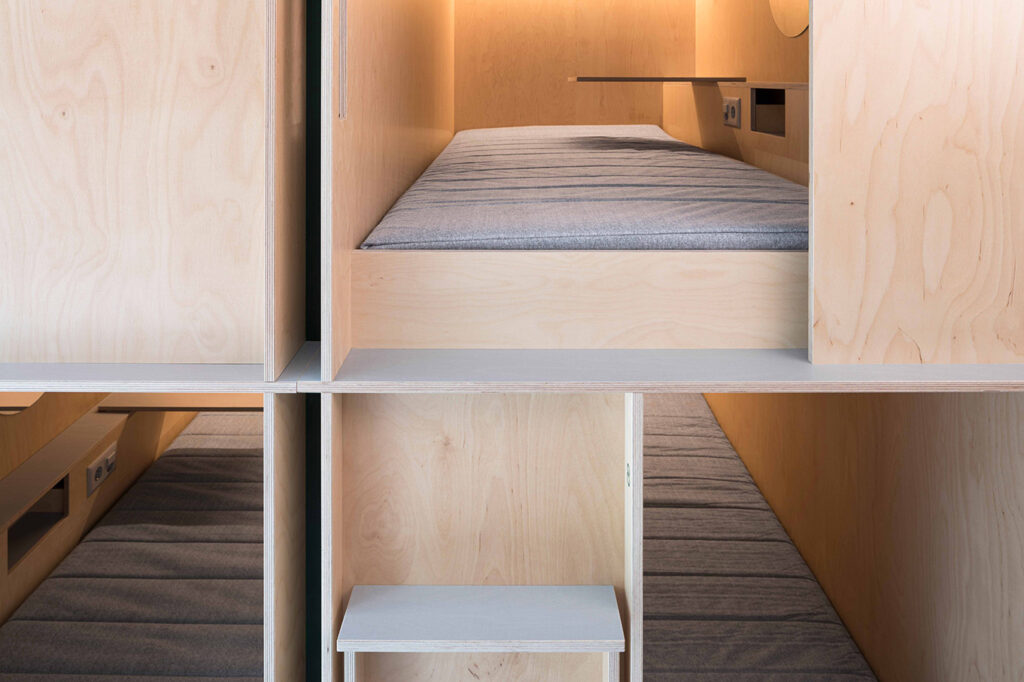Header: Green Marmot, ©Livit
In the heart of Zurich’s historic old town, the Green Marmot Capsule Hotel, developed by Weyell Berner Architekten, redefines accommodation for networkers, digital nomads, and travelers, offering fully equipped rooms in a ‘Tiny House’ format. The design, inspired by the minimalistic charm of Tokyo’s capsule hotels, seamlessly integrates with the cultural and functional aspects of Zurich’s rich heritage.

The hotel’s name, Green Marmot Capsule Hotel, draws a connection to the habits of the alpine-dwelling green marmot. This friendly creature’s outdoor living space influences the choice of natural materials and colors, creating a harmonious blend with Zurich’s surroundings. As you enter, the minimalist-designed entrance with plain surfaces sets a calm and spacious tone, providing a stark contrast to the narrow and dark corridor that leads you into the world of the green marmot.
The retreat into each private sleeping capsule is more than just a functional experience; it’s a carefully curated journey through narrowness and width, light and shadow, old and new. This intentional design choice pays homage to the existing building’s history while creating a unique and immersive experience for the guests. The capsules themselves provide a cozy haven, a refuge within the bustling city.

Situated in the middle of Zurich’s old town, the Green Marmot Capsule Hotel offers breathtaking views of the nearby river Limmat. The strategic location allows guests to immerse themselves in the city’s rich cultural heritage while enjoying the modern amenities of a cutting-edge accommodation facility. The hotel seamlessly becomes a part of the historic landscape, blending tradition with innovation.

The concept of capsule hotels originated in Tokyo as a response to the need for affordable accommodation in densely populated urban areas. The Hotel takes inspiration from this trend but elevates it to cater to discerning guests with diverse cultural backgrounds. The capsules, with their reduced personal space requirements and shared functions, contribute to urban redensification by making efficient use of the existing city infrastructure.

Rather than confining guests to the hotel premises, the Green Marmot encourages them to explore the surrounding neighborhood for meals. Local cafes, restaurants, and bars become the hotel’s temporarily extended living space, fostering a sense of community and connection with Zurich’s culture.









